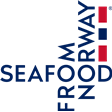With consumers’ tastes and shopping habits evolving and sustainable sourcing, health and nutrition being crucial to their decision-making, find out how seafood meets these credentials – and how UK retailers can capitalise.
As consumer tastes and shopping habits evolve, the interest in responsibly sourced seafood is growing, marking it as a vital, healthy and delicious component in the food security conversation. But to keep its unique qualities front of mind, it is imperative that the seafood industry takes a leading role, guiding consumers towards making informed choices.
At the recent Norway – UK Seafood Summit, the consensus was clear: fostering deeper cooperation is essential for industry stakeholders to meet evolving consumer needs and ensure a sustainable food supply. As consumers look to retail to help them make conscious choices, retailers are rising to the challenge, implementing responsible Sourcing strategies and raising awareness of sustainably sourced seafood. This is cultivating stronger trust between consumers and retailers, and is also motivating stakeholders across the seafood value chain to collaborate towards a common goal.
Consumer trends impacting the seafood category
Seafood from Norway explored industry trends and dynamics and provided solutions in last year’s The Grocer white paper: Building seafood consumer confidence to boost consumption. The main consumer trends were revisited by Kantar and thefoodpeople at the organisation’s 2024 Summit and seafood still has a powerful story to tell.
![Frame_0005_3200_1800_005841[1]](https://dmrqkbkq8el9i.cloudfront.net/Pictures/480xany/5/1/0/319510_frame_0005_3200_1800_0058411_244412.jpg)
Greater versatility and Convenience
“In 2024, a balanced handful of converging trends influence and push each other along: technology, innovation, sustainability and the cost-of-living-crisis [NSC] to name a few.”
The pandemic changed how consumers shop and work, so they expect more versatility and convenience from groceries. The evening meal remains most important for chilled and frozen fish, representing 68% of occasions [Kantar].
And, to fit increasingly busy lifestyles, fast and easy-to-prepare meals offer a clear win for retailers. Consumers are watching their pennies, so they expect meals that guarantee satisfaction and taste and, with fewer ingredients on the plate, quality is key.
Despite this, they’re willing to pay more if they’re dining in instead of out, for snacks, weekends and special occasions. This has led to greater appetite for gourmet globally inspired seafood recipes.
Seafood has a big role to play in healthier lifestyle choices
Nutrition matters, and 27% of food and drink servings were for health reasons over the latest year [Kantar]. No longer confined to general wellbeing, the focus has moved to brain health and optimised living through hacking people’s physiology with vitamins and minerals. For many, this is translating into a desire to ‘eat less but better’ [thefoodpeople] putting both quality and the nutritional value of groceries under closer scrutiny.
From meat reduction to alternative proteins, the public gaze has also shifted to the impact of ultra-processed foods – on the environment and health.
A hot contender in the protein debate, sustainable seafood is the only protein with naturally occurring omega-3s supporting heart and brain function. It is also a rich source of valuable nutrients such as vitamin D, potassium, iodine and selenium, with some species offering B2, iron and zinc. In fact, recognising its nutritional significance, national dietary guidelines recommend two portions of fish (one oily) a week.

Highlighting the seafood category through inspiration and celebration
Despite seafood’s clear value as a delicious nutritious protein, there are several well-known barriers to consumption, which have also been heightened by economic concerns.
For many consumers, the decision to incorporate seafood into their diets involves a delicate balance between the desire for healthier eating habits and the constraints of their budgets. This balancing act, although a short-term concern, is exacerbated by the current economic climate, characterised by high inflation and the escalating costs of essentials like fuel and food. Yet, amid these challenges, the nutritional benefits of seafood endure as a compelling reason to prioritise its consumption.
As the world demands an ever-greater supply of sustainable protein, seafood’s health benefits make it a key dietary choice for the future.
In today’s dynamic seafood market, fostering close collaboration with the industry is paramount to understanding and addressing the factors that influence consumers’ confidence in purchasing seafood. To sustain and expand the category, it is imperative to provide consumers with enhanced guidance, inspiration, and a deeper appreciation of the origins of seafood products. By celebrating the responsible sourcing of seafood and highlighting its journey from ocean to plate, greater confidence and understanding can be instilled among consumers.
This approach not only builds trust but also reinforces the value of responsibly sourced seafood in meeting both consumer demand and sustainability goals. Through industry collaboration and a concerted effort to educate and inspire consumers, a future can be shaped where seafood remains a valued and essential component of the culinary landscape.

Origin matters. Call it out to your customers
In the UK, 33% of the population are ‘Eco Actives’ [Kantar] and consumer awareness of ethical sourcing continues to grow. And as demand for transparency and traceability in seafood rises, consumers look to retailers to facilitate and guide responsible everyday choices.
The top exporter of seafood to the UK, Norway represents an estimated 20% share of the market, exporting popular species such as salmon, cod, haddock, cold water prawns and halibut. With its established market presence, the Norwegian seafood industry takes a keen interest in UK consumer trends, carrying out in-depth research to share across the supply chain.
This reveals origin Labelling is an above average driver for consumers buying white fish from UK retailers. What’s more, over half (62%) of consumers say seafood with clear origin labelling is a driver for store choice [NSC].
Norwegian seafood is unique, not simply because it originates from cold, clear waters; it also benefits from generations of experience, modern knowledge, innovation and technology, and is harvested and farmed in a sustainable manner.
With growing awareness and recognition by more than 1 in 4 UK seafood consumers, the ‘Seafood from Norway’ trademark gives retailers an easily recognised marker of sustainability and quality, helping them to simplify choice for consumers and businesses and add value by highlighting provenance.
Explore Norwegian whitefish
In an era marked by growing consumer consciousness, squeezed budgets and desire for transparency, the seafood industry also faces several opportunities. Consumers are increasingly aware of healthy eating and the ethical and environmental implications of their purchasing decisions, but they expect guidance and reassurance.
This reveals an opportunity to work together as an industry in order to better communicate seafood’s unique qualities and provenance. Seafood from Norway’s inspirational ‘Explore’ national campaign is set to relaunch this October to support the seafood category. Join us as we continue our mission to educate and inspire consumers on the versatility and benefits of Norwegian whitefish, while harnessing the power of origin labelling.
To find out more about Seafood from Norway go to https://www.seafoodfromnorway.co.uk/origin-matters/
Sources
1 Top Seafood Trends 2024























